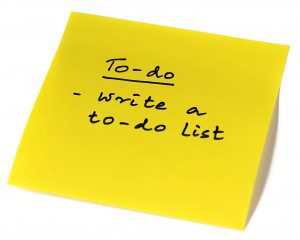Let me start by saying that if we were meant to be super-productive all the time, procrastination wouldn’t be so much fun.
I don’t know about you but I’ve developed a whole range of entertaining and amusing things to do when I’m supposed to be doing something else. The something else that’s useful. The something else that would further my career or make me more money or secure my future.
And I have to admit that I also like the naughty element that’s inherent in procrastination. I know I should be doing something useful. My Super Ego rule maker is reminding me constantly that I should be focusing on what’s important but my rebellious Id (the part of me that seeks pleasure) takes great delight in ignoring it. In fact it’s even more fun that my Super Ego is becoming increasingly upset. Like a child laughing at their furious parent.
But rather than extolling the virtues of procrastination, I’m actually here to help you overcome it.
Why do we procrastinate? Apart from it appealing to our Inner Brat, I mean.
Procrastination stems from a few sources but the main ones are a) fear and b) having a lack of interest in what you’re doing. A lack of interest can include finding little meaning in what you’re doing, the task not being challenging enough, not getting enough immediate feedback on how you’re doing and not getting enough immediate reward. Fears can include fear of success or failure, of not being good enough, of being compared unfavourably to others – and the list goes on. We’re pretty fearful creatures really.
It’s kind of obvious why a lack of interest would make us procrastinate. Let’s face it – we’re bored. And who wants to be bored? When things are boring we tend to have to use this other unfun thing called ‘discipline’. Discipline requires quite a lot of energy from our brain. We can only maintain discipline for so long before our brain needs a rest and a healthy dose of sugar. So if you’re looking at using discipline for overcoming boredom-driven-procrastination make sure your desk drawer has an ample chocolate supply.
Personally I prefer to build meaning, interest and reward into my boring work. Or delegate – but that’s not always possible. Usually the first step is breaking the task down into teeny tiny bits. The more ‘steps’ you have in a job the more chance you have of reward at the completion of each one.
We need reward. Lots of it. Our brains are geared to thrive on it. The more immediate the reward we receive the happier our brain is to keep us focused on what we’re doing.
Also, each little goal achieved results in the release of dopamine – one of the many feel-good neurotransmitters. Dopamine is the neurotransmitter that is released in abundance when you use cocaine. If you’re not sure what that feels like then consider this – lab rats will choose to self-administer cocaine over and above food and sex until they die from sexual frustration and starvation. Getting a shot of dopamine from achieving a small goal may not be as compelling as self-administered cocaine to a lab rat but it will still feel good and make you want more. So break it down – small steps for the greatest reward.
Reward is one of the easy things to build into your battle against procrastination. Keep posted and I’ll give you plenty more strategies next time.

